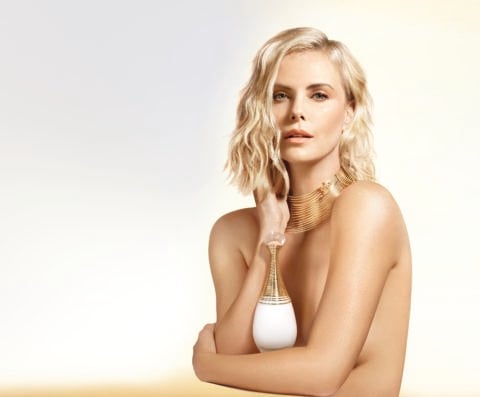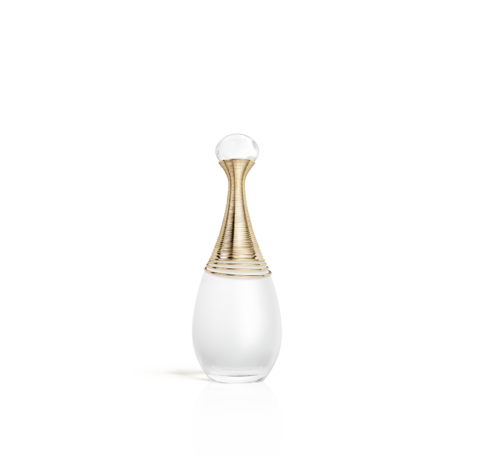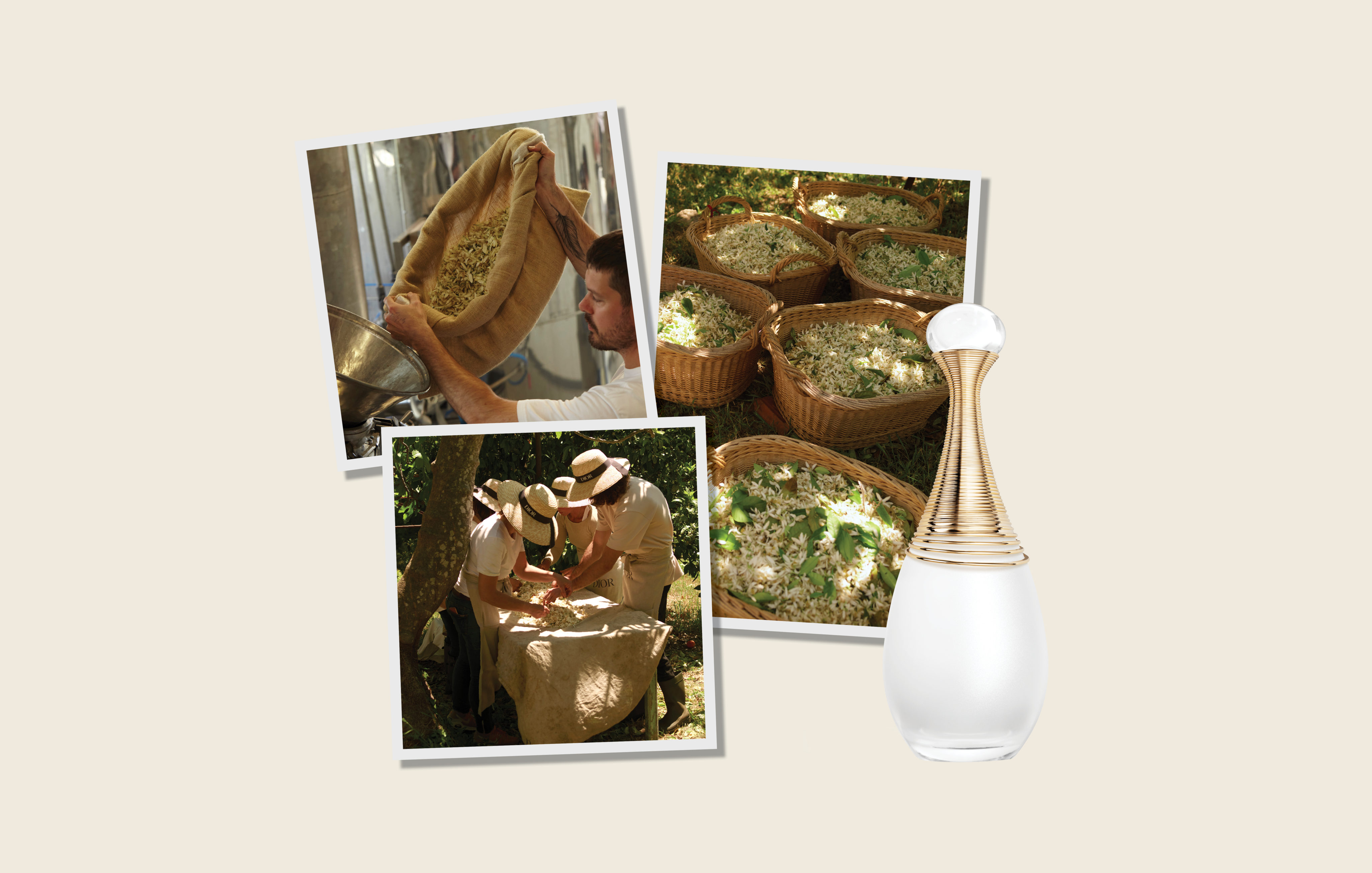A look at the reinvention of a cult classic.
“Life isn’t black and white; it’s gold.” If you’re a beauty history buff, then you likely know that famous tag line from the original 1999 Christian Dior J’adore fragrance advert starring Estonian supermodel Carmen Kass walking through a pool of liquid gold (actor Charlize Theron has taken over as the face since 2006).
With its signature gilded bottle inspired by the figure-eight (a nod to Christian Dior’s 1949 cyclone dress) and adorned with what looks like fine, golden jewellery around a women’s neck (derived from one of John Galliano’s Maasai-style gold chokers from fall 1997), Dior’s J’adore is arguably one of the most well known perfumes out there.
Ushering in a new era of opulence and optimism for the new millennium at the time, the initial fragrance, which was created by French master perfumer Calice Becker, was a robust, classic floral that smelt nothing like your grandma’s bedroom: think a cluster of ylang-ylang, rose and jasmine for a sensual, magnetic spritz. And even though the original juice has since been reformulated to include a number of different concentrations over the years, including different iterations of the iconic gold-wire-wrapped flacon, the allure of J’adore has never gone out of style. Now, over two decades later, the scent is disrupting perfume circles yet again with J’adore Parfum d’Eau, which dropped earlier this fall.

Made with the same feminine, floral DNA, J’adore Parfum d’Eau is an innovative water-based scent, the brainchild of Dior’s former in-house perfumer of nearly fifteen years, Francois Demachy, who officially stepped down last year.
The outcome of a Dior patented nano-emulsion technique — it is able to infuse higher-than-normal quantities of flower oil into a water base using extremely high pressure and in turn eliminates the need for any chemical solubilizers — the latest spritz is made without a trace of alcohol, leaving only the good stuff: a bouquet of magnolia, jasmine, rose and honeysuckle. (Tip: No alcohol means it also doubles as a fabulous scented hair mist without drying out tresses.) What’s more, there’s also a brand new signature floral note, bitter orange neroli flower blossoms of Vallauris, which are grown exclusively for Dior.
Over 900 kilometres south of Paris, in the hillside commune of Vallauris just outside of the seaside town of Antibes, former sales director turned flower farmer Christelle Archer tends to Florapolis, a once abandoned, 100-year-old bitter orange tree grove. “The Florapolis estate has 502 trees, including 300 that are centenary,” shares Archer. Her exclusive partnership with Dior helps to rehabilitate flower production in the region. “Unfortunately, due to land pressure, most of the orange tree farms disappeared in favor of the construction of villas, which can be menacing for our heritage.”

During harvest time in the spring, flowers are picked by hand with the help of seasonal workers. “Over a period of four weeks, we pick each flower. They are then grouped in sheets to be brought on the sorting table in order to remove any leaves or other vegetation that could alter the quality of the neroli oil,” Archer explains. The neroli oil itself is then obtained via a steam distillation. “This a profession that requires a precise savoir faire. I transport the flowers every day to a distillery so they can be processed the same day. This way, we preserve the optimal quality of fresh flowers.”
Housed in a reimagined white opalescent bottle, J’adore Parfum d’Eau ($195) feels incredibly easy to wear, and is a delight to spritz on: the spray experience has even been elevated to a cocooning mist that just hits different than other perfumes.
So if you’re still looking for a last-minute gift or simply want a new signature scent to help you ring in the New Year, we highly recommend this one. There will be zero regifting here, trust.
